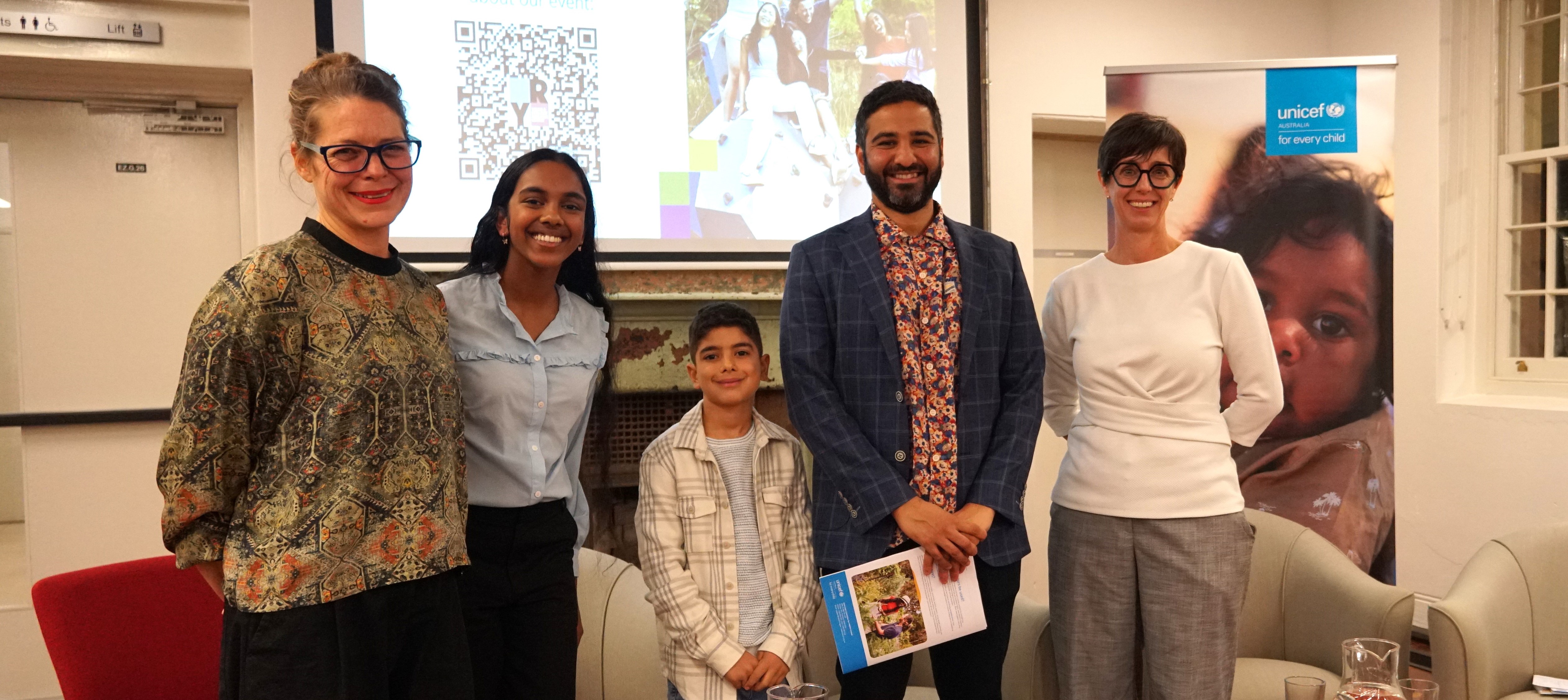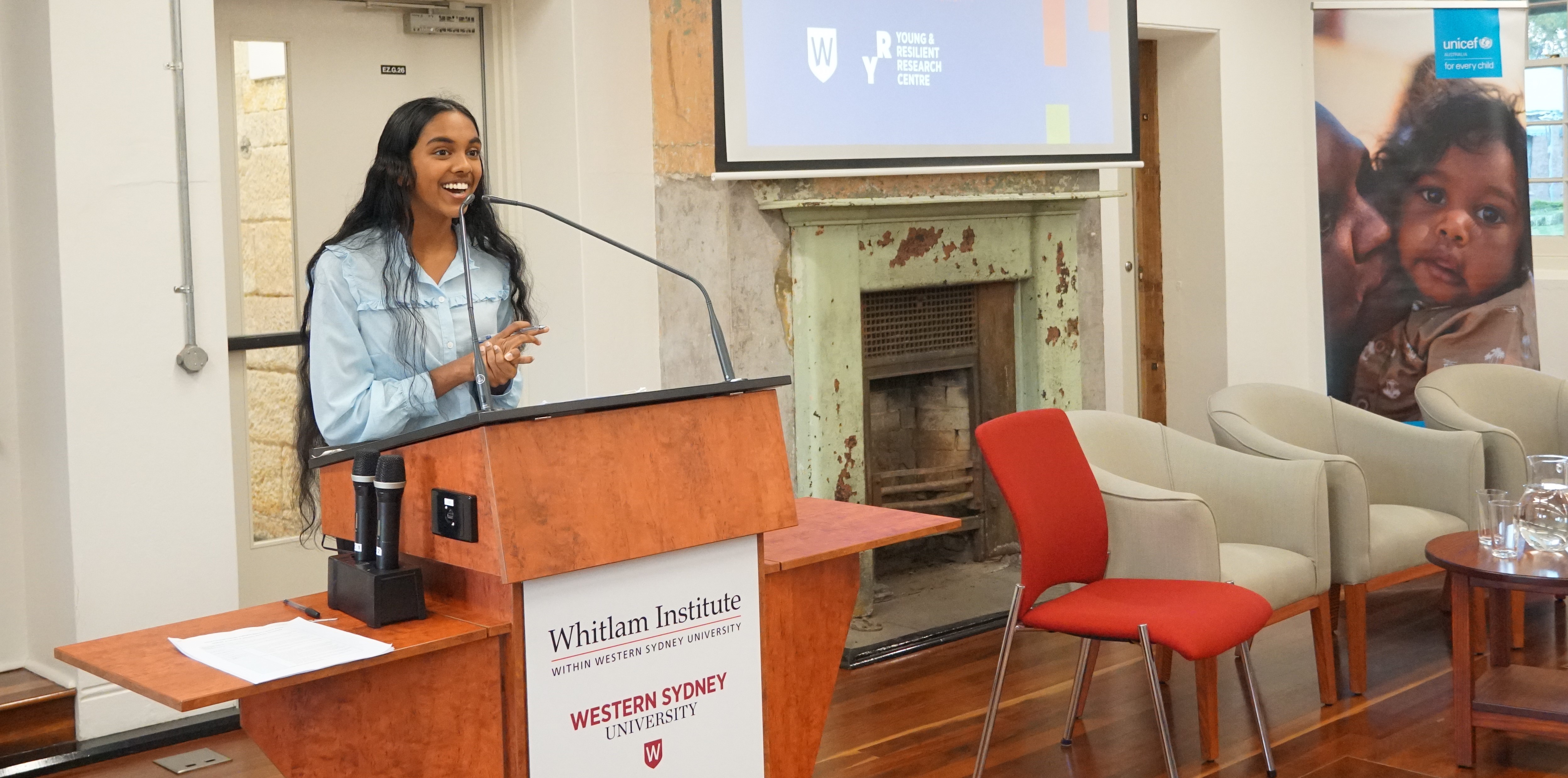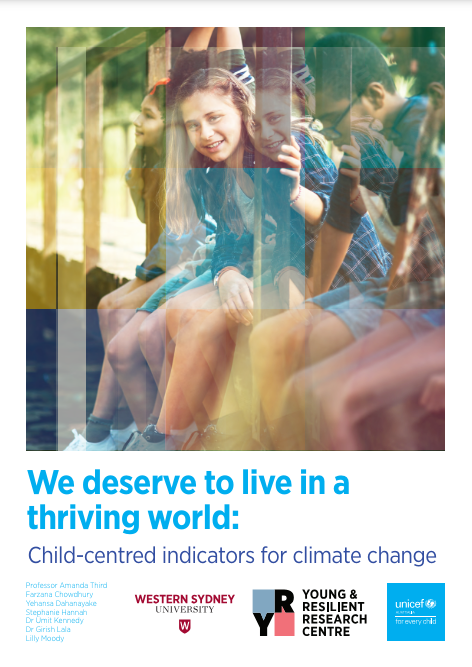New tool to measure how climate change affects children and young people launched by the Young and Resilient Research Centre and UNICEF Australia
Image: Y&R Co-director Professor Amanda Third, 16-year-old Yehansa Dahanayake (event MC, report co-author and research workshop participant), Adam (an 11-year-old Child Parliamentarian), UNICEF Australia’s Head of Climate, Nishadh Rego and Kelly Pfeiffer, Director for Design Education at Digital Influx and Zoo Education Officer.
SYDNEY, 21 May 2024: The findings of a new research project to understand and measure how climate change affects children and young people was recently launched at the Female Orphan School at Western Sydney University.
The project resulted from a partnership between the Young and Resilient Research Centre (Y&R) and UNICEF Australia. This project involved Y&R researchers conducting a series of in-depth consultations with young people aged 10 – 18 years old in three regions of New South Wales – the flood-prone Northern Rivers region, coal-mining towns in the Upper Hunter that are transitioning to renewable energy production and heatwave affected suburbs of Western Sydney.
The research findings have been published in a report called We deserve to live in a thriving world: Child-Centred Indicators for Climate Change which includes a ground-breaking new tool, known as ‘indicators’, to measure how climate change impacts the lives of children and young people.
Key findings identified in the report are:
- Children and young people feel let down by older generations and they feel like it’s up to them to fix climate change.
- They experience climate change differently depending on where they live, so the climate action they want to see changes from place-to-place.
- They understand that climate change impacts every aspect of their lives and they want everyone to be educated about it.
- They want governments and corporations to take action, stop making things worse, and start reversing the effects of climate change.
- They want meaningful ways to participate in climate action so that they can help shape a better future.
The launch event was attended by over seventy guests including representatives from UNICEF Australia, Western Sydney University and a number of young people, some of whom are involved in Liverpool's 2168 Children's Parliament.
The event was MCed by 16-year-old Yehansa Dahanayake who is one of the report’s co-authors, as well as a co-researcher on the project and a participant in the Western Sydney workshops.
Image: 16-year-old Yehansa Dahanayake (event MC, report co-author and research workshop participant) addressing the audience.
Other speakers at the event included Professor Freya MacMillan, Pro Vice-Chancellor (Research) at Western Sydney University and Nicole Breeze, UNICEF Chief Children’s Advocate.
“Climate Change is changing childhood... These events are causing major disruptions to the health, safety and development of children and young people [as they grow up],” said Breeze, going on to emphasise the unique and long-lasting effects that climate change is having on children and young people.
“Children today and those yet to come will inherit the legacy of a changing climate. [Because of this] they bear a disproportionate responsibility of the legacy they inherit,” added Y&R Co-director, Professor Amanda Third, who led the research project. The launch also included a lively panel discussion involving UNICEF Australia’s Head of Climate, Nishadh Rego; Prof Amanda Third; Yehansa Dahanayake; Kelly Pfeiffer, Director for Design Education at Digital Influx and Zoo Education Officer; and Adam, an 11-year-old Child Parliamentarian who spoke extremely eloquently about the challenges we face as a result of climate change.
“Climate change means to me temperatures are getting hotter and hotter and sea levels are rising. It's making a big impact on the environment which is not only affecting the world we live in now but the world we want to create,” said Adam.
And what was Adam’s advice for governments tackling climate change? “To put a bit more effort into it. Make it a focus”.
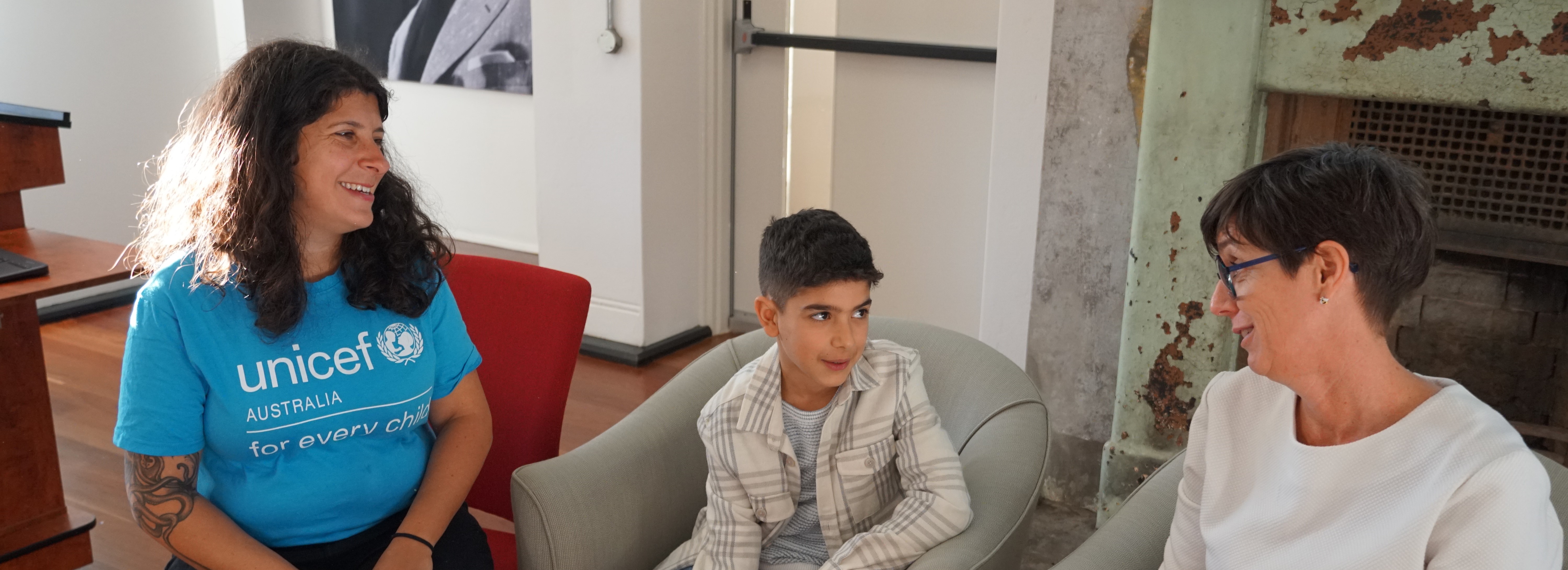
“Climate change will inevitably impact almost every single part of our lifestyles and our world. When we talk about climate change we’re not just talking about 1.5 degrees of warming we’re talking about migration, education, transport, health, eco anxiety... and what does this mean for marginalised groups? We need holistic, systemic solutions and solutions that understand local contexts because climate change does not affect everyone equally,” explained Yehansa during the panel discussion.
After listening to Yehansa’s insightful comments, UNICEF Australia’s Head of Climate, Nishadh Rego said; “I almost feel like we can go home now! We have come such a long way [in this project] and its really a testament to the [Y&R and UA] crew that we're at this point. Climate change is a wicked problem and it's going to take [involvement] from everyone from governments to businesses to academics to faith institutions to children and young people working together [to solve it].”
From here, UNICEF Australia and the Young and Resilient Research Centre will be working to promote the report and the use of the Child-Centred Climate Indicators to policymakers, educators, healthcare professionals, parents, and young people with the aim of enabling real-life improvements for young people, now and in the future with a view to stopping and ultimately reversing the effects of climate change.
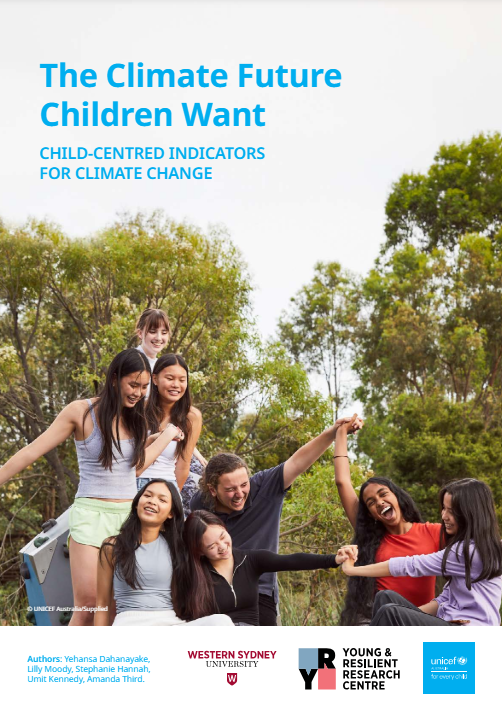 |
